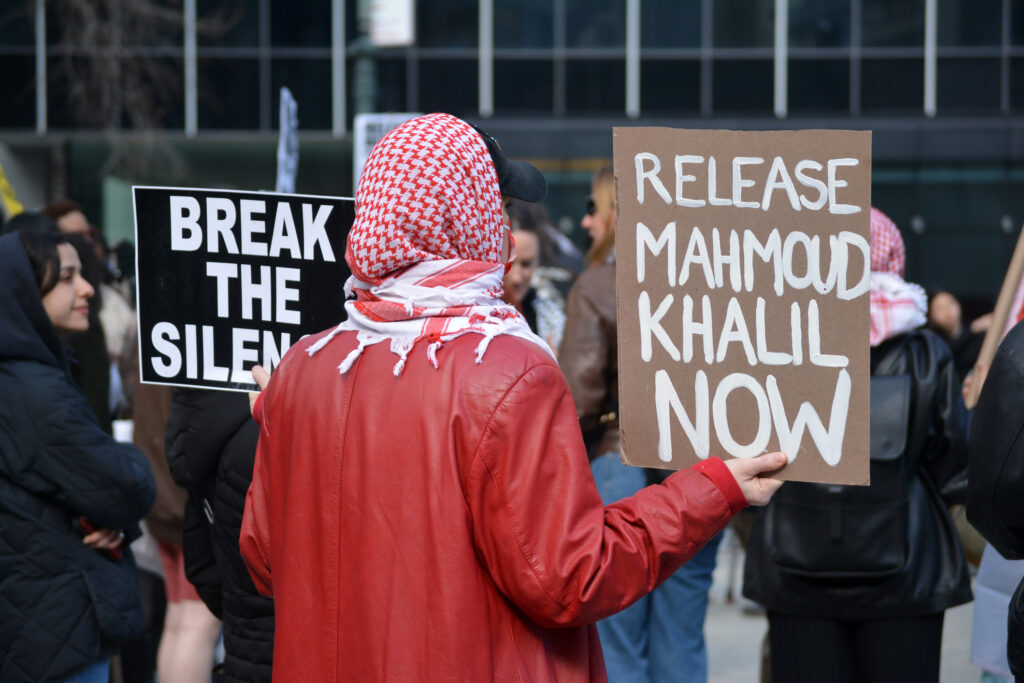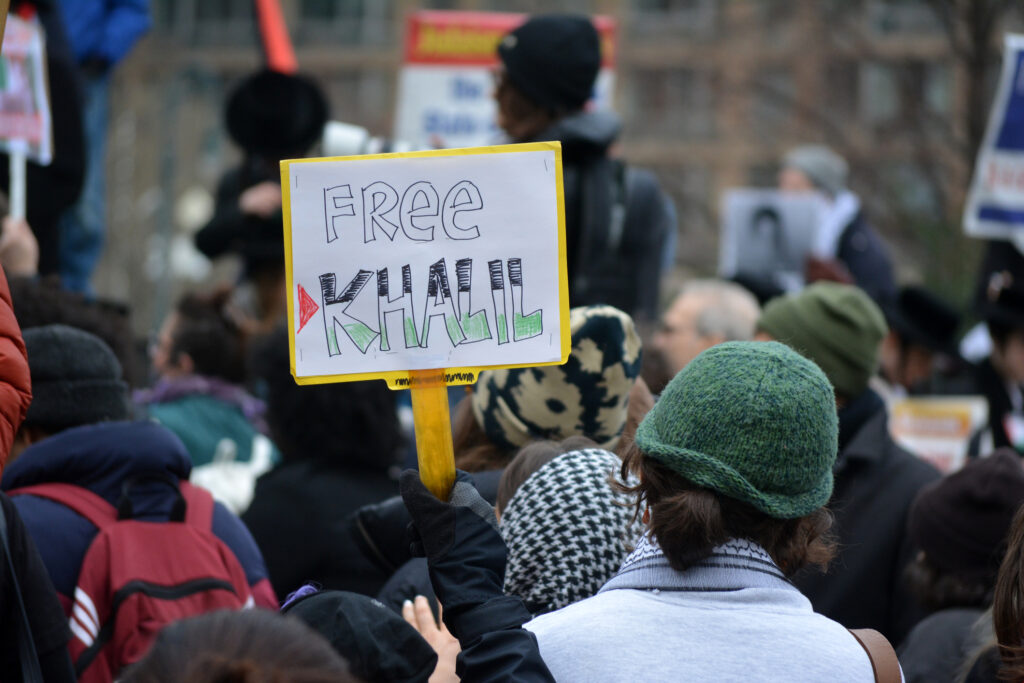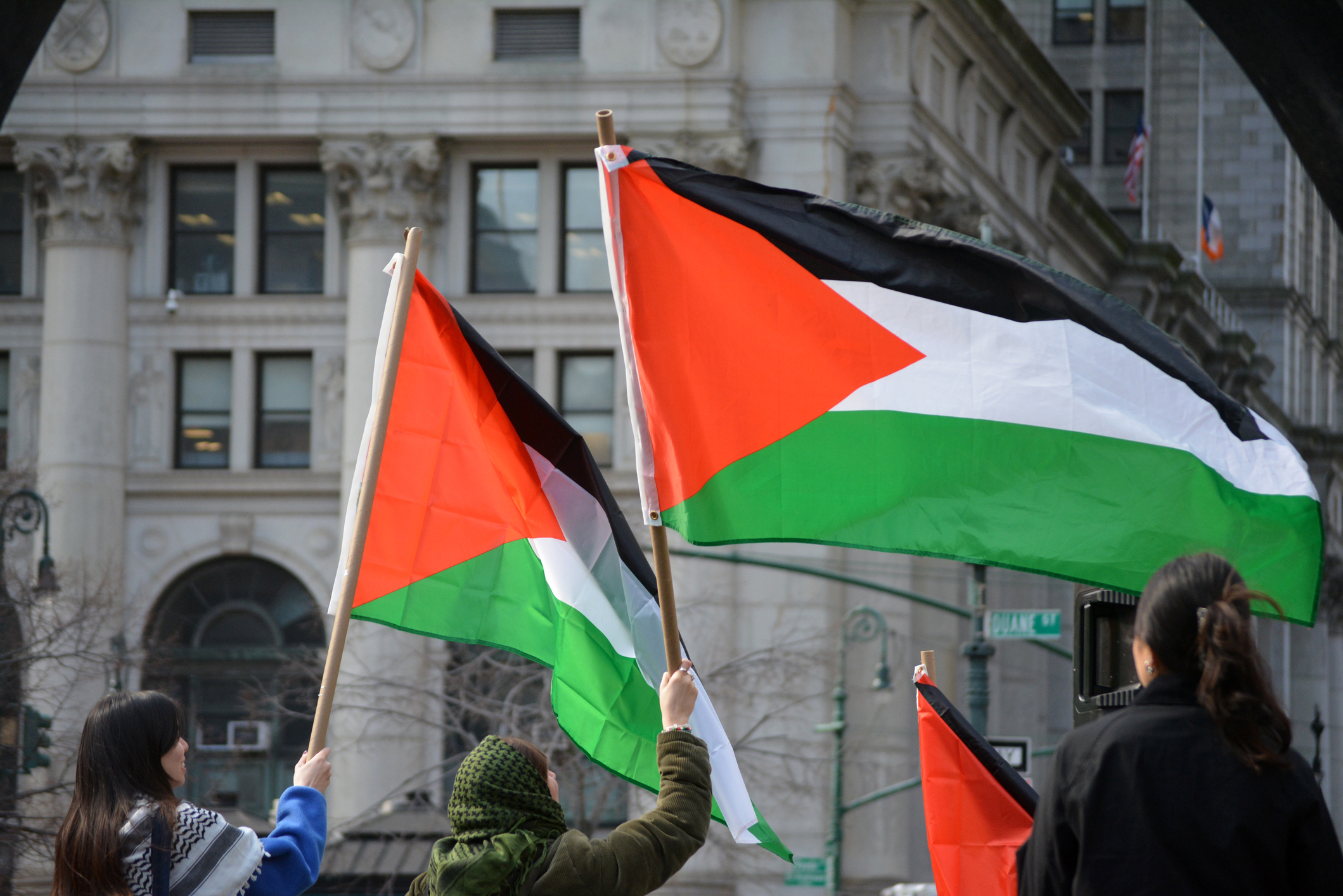NEWARK, NJ – The Syrian born Pro-Hamas activist who organized and led a series of discriminatory protests at Columbia University that aimed to keep Jewish students from attending class and vilifying Jews worldwide will have his deportation hearing moved from Louisiana to New Jersey.
In the ongoing legal battle over the detention of Mahmoud Khalil, a Palestinian activist and Columbia University graduate, a federal judge in New York has ordered the transfer of his case from Louisiana to New Jersey. The ruling, issued on Wednesday, March 19, by U.S. District Judge Jesse Furman, marks a critical juncture in Khalil’s challenge against the Trump administration’s efforts to deport him for his role in pro-Palestinian campus protests in 2024.

Khalil, a lawful permanent U.S. resident with a green card, was detained by Immigration and Customs Enforcement (ICE) agents on March 8 at his university-owned apartment in Manhattan. Following his arrest, he was briefly held at a detention facility in New Jersey before being transferred to the Jena ICE Processing Center in Louisiana, over 1,000 miles from his home.
The Trump administration had sought to have Khalil’s legal challenge either dismissed or moved to Louisiana, a jurisdiction known for its conservative-leaning appellate court, the 5th U.S. Circuit Court of Appeals. However, Judge Furman rejected this bid, ruling that the case must be heard in New Jersey, where Khalid was detained when his attorneys filed a petition for his release.
The decision hinges on jurisdictional rules tied to Khalil’s location at the time of filing. “The district of New Jersey was the one and only district in which Khalil could have filed his petition when he did,” Furman wrote in his 33-page order, emphasizing that the transfer to New Jersey aligns with legal statutes governing habeas corpus cases.
The ruling also keeps in place a prior order barring the government from deporting Khalil while his case is pending, a measure now left to the discretion of the New Jersey court.

Khalil’s legal team, which includes prominent civil rights advocates, hailed the decision as a victory against what they describe as a politically motivated attempt to silence dissent.
“The government moved Mohammad to Louisiana to stack the deck in their favor,” said Samah Sisay, one of Khalil’s attorneys, in a statement to Reuters. “This ruling ensures his case will be heard closer to home, where it belongs.” Khalil’s wife, a U.S. citizen who is eight months pregnant, has been unable to visit him in Louisiana, adding urgency to the calls for his release or transfer.
The Trump administration has justified its pursuit of Khalil’s deportation by citing his alleged leadership in campus protests against Israel’s war in Gaza, which they claim aligns with broader national security concerns. President Donald Trump has publicly framed the arrest as part of a crackdown on “terrorist sympathizers” among foreign students, though Khalil has not been charged with any crime. His lawyers argue that the administration is retaliating against his constitutionally protected free speech, accusing the government of leveraging an obscure provision of the Immigration and Nationality Act to target him.
The transfer to New Jersey shifts the case away from the conservative 5th Circuit and into the jurisdiction of the 3rd U.S. Circuit Court of Appeals, which has a more balanced judicial composition. Legal experts suggest this could improve Khalil’s chances of a favorable outcome, as the New Jersey court will now decide on his requests for release and challenges to the legality of his detention.
In a letter dictated from the Louisiana facility earlier this week, Khalil described himself as a “political prisoner,” asserting that his arrest is part of a broader strategy to suppress pro-Palestinian voices. “My detention is a direct consequence of advocating for a free Palestine,” he wrote, also alleging that Columbia University facilitated his targeting by sharing student records with authorities.
As of Thursday morning, Khalil remains in Louisiana, awaiting further action from the New Jersey court. His legal team continues to push for his immediate release, arguing that his detention violates due process. Meanwhile, the case has sparked outrage among immigration and civil rights advocates, who see it as a test of the administration’s ability to deport legal residents for political activism.

